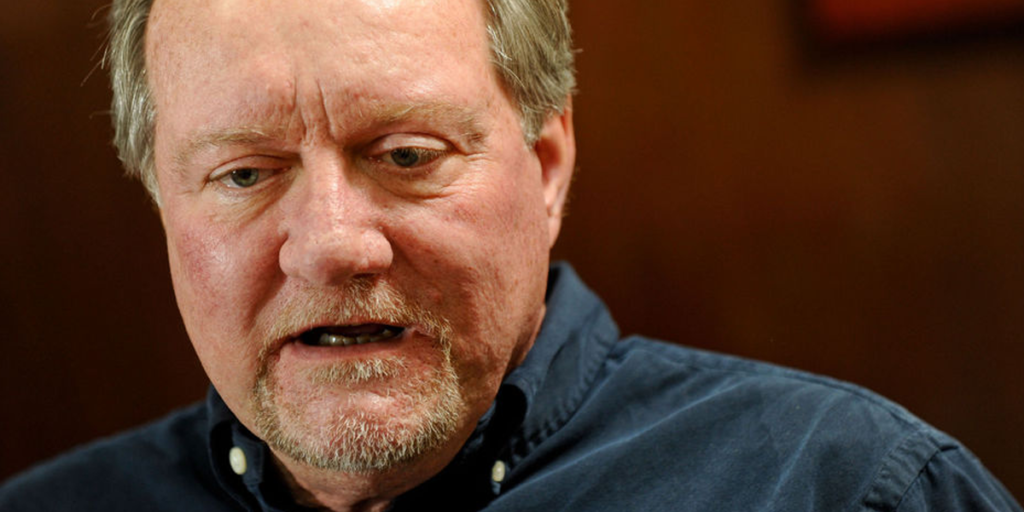Former State Rep. Micky Hammon released from prison

Former Alabama House Majority Leader Micky Hammon was released from federal prison Thursday, according to the Federal Bureau of Prisons website. The Decatur-Republican was sentenced to three months in prison on charges relating to mail fraud back in February. Hammon pleaded guilty on felony charges in September to devising a scheme to commit mail fraud involving his campaign funds. During his sentencing he was ordered to pay $50,657 in restitution for the crimes, which will be distributed to his campaign contributors, and was sentenced to three months in federal prison and three years supervised release. He faced a maximum sentence of 20 years. According to court documents, Hammon used campaign money to pay his own personal expenses as part of a mail fraud scheme. In 2013, he created a principal campaign committee through the Secretary of States Office allowing him to raise funds for his reelection campaign. He was writing checks from his campaign committee account and then depositing them into his personal account. He later used the funds to pay for personal expenses, which is strictly prohibited by Alabama campaign finance rules. As a result of pleading guilty to a felony, Hammon was automatically removed from his House seat in the state House. He had represented the 4th district in the Alabama House since 2002 and served as the House of Representative’s majority leader until Feb. 2017.
Parker Snider: Seeing the power of compassion, hope, and work first-hand

Three years ago, I had the privilege of visiting South America for the first time. During my stay, I—along with the rest of my group—met a family whose story broke our hearts. Led by a single mother, the family lived in an aluminum-roofed and mud-filled house in the middle of a village town square, right between two churches. Her adult children still lived with her in their home: one blind and two deaf, blind, and intellectually disabled. Their abusive father abandoned them long ago. The government cared little about these rural people. The two churches, within spitting distance, never troubled themselves with the family. They were, by many standards, forgotten. Thankfully, however, our local partner became aware of this family and determined a way that we, temporary visitors, might make a lasting impact. Through some South American creativity and a lot of bamboo, we were able to make their lives easier, safer, and cleaner. We left feeling tired from work yet restless to know our effectiveness, discouraged by their past yet hopeful for their future. This June we returned to the family’s home. Our arrival was met not with the timid greetings of before but with a new and palpable joy. To my surprise, present at the home was not only the family, but a host of other community members. I was eager to see whether our work had been successful, and the locals were eager to show us that it had, in fact, not been in vain. Just as exciting for me to see was that out of this home now grows a small business. Together with the community, members of the family weave and sell baskets (which we were more than happy to purchase). A lot has changed since our first visit. I cannot be sure exactly why, but I have some ideas. First, I trust that being shown God’s love, not only through our initial visit but through the presence of many others over the years, has reminded them of their worth. Second, I am confident that having certain urgent physical needs met has instilled a hope that their future may be better than their past. Third, I believe that working, for however long, has provided a sense of dignity. This transformation in a South American village offers principles that we must remember as we seek community renewal in the United States. First is the fact that struggling Americans need to be reminded of their value as much as this South American family. We often, intentionally or not, strip people of their God-given worth when we reduce them to whether they receive government support or not. The truth is that, regardless of wealth or status, all people are infinitely valuable. We ought to recognize and exemplify this reality regularly. Only when our compassion is felt and truly experienced by those facing difficulties, specifically the unemployed, will our oft-heralded advice to pursue the dignity of work—the second principle the South American family’s transformation reveals—be received. Work has always been part of God’s design for humanity. In the very beginning, even before the curse of sin, God placed Adam “in the garden of Eden to work it and keep it” (Genesis 2:15). John Piper writes that “God made us to work. He formed our minds to think and our hands to make. He gave us strength—little or great—to be about the business of altering the way things are.” Therefore, we must promote work not because we’re sick of supporting others, but because we trust that God’s plan for humanity’s good is for us to work, and to work hard. Witnessing the change of this family is just one of many formative and equally (if not more) incredible experiences from my time in South America. Most of these were, of course, more personal. This family’s transformation, however, demonstrates general and essential truths that we would do well to remember—namely the power of compassion, hope, and work. ••• Parker Snider is Policy Relations Manager at the Alabama Policy Institute (API). API is an independent, nonpartisan, nonprofit research and educational organization dedicated to strengthening free enterprise, defending limited government, and championing strong families. If you would like to speak with the author, please e-mail communications@alabamapolicy.org or call (205) 870-9900.
Abortion rights could be litmus test for high court nominee

Republican Sen. Susan Collins, a key vote on President Donald Trump‘s pick for the Supreme Court, said Sunday she would oppose any nominee she believed would overturn the landmark Roe v. Wade decision that legalized abortion. The White House is focusing on five to seven potential candidates to fill the vacancy of retiring Justice Anthony Kennedy, a swing vote on the court. The Maine senator said she would only back a judge who would show respect for settled law such as the 45-year-old Roe decision, which has long been anathema to conservatives. “I would not support a nominee who demonstrated hostility to Roe v. Wade because that would mean to me that their judicial philosophy did not include a respect for established decisions, established law,” Collins said. Such a judge, she said, “would not be acceptable to me because that would indicate an activist agenda.” Trump spent the weekend at his New Jersey golf club conferring with his advisers, including White House counsel Don McGahn, as he considers his options to fill the vacancy that might make precedent-shattering court decisions on abortion, health care, gay marriage and other issues. The president told reporters Friday that he was homing in on up to seven candidates, including two women, and would announce his choice on July 9. Trump is expected to begin his search in earnest this week at the White House and said the process could include interviews at his golf club before he reaches a final decision following the Fourth of July holiday. During his 2016 campaign and presidency, Trump embraced anti-abortion groups and vowed to appoint federal judges who will favor efforts to roll back abortion rights. But he told reporters on Friday that he would not question potential high-court nominees about their views on abortion, saying it was “inappropriate to discuss.” The Supreme Court legalized abortion in 1973, but anti-abortion advocates hope Roe v. Wade will soon be overruled if Trump gets the chance to appoint a justice who could cast a potentially decisive vote against it. Without Kennedy, the high court will have four justices picked by Democratic presidents and four picked by Republicans, giving Trump the chance to shift the ideological balance toward conservatives for years to come. Both Chief Justice John Roberts and Justice Neil Gorsuch, Trump’s first pick to the high court, have indicated more broadly that they respect legal precedent. On Sunday, Leonard Leo, an outside adviser to Trump on judicial nominations, said he expected Trump to select a nominee who is mindful of precedent but who is also more “originalist and textualist.” That judicial approach typically involves a more literal interpretation of the Constitution, and not reading into the Constitution language that doesn’t explicitly appear. Roe, for instance, relied on a right to privacy, which is not explicitly mentioned in the Constitution. Possible nominees being eyed include Thomas Hardiman, who serves alongside Trump’s sister on the Philadelphia-based 3rd U.S. Circuit Court of Appeals, and Raymond Kethledge, a federal appeals court judge who clerked for Kennedy. Also of interest are Amul Thapar, who serves on the federal appeals court in Cincinnati; Brett Kavanaugh, a former clerk for Kennedy who serves on the federal appeals court in Washington, D.C.; and Amy Coney Barrett, who serves on the federal appeals court in Chicago. Echoing Leo’s view, Sen. Lindsey Graham, R-S.C., a member of the Judiciary Committee, said he didn’t think Trump would be overly focused on the Roe ruling. “You don’t overturn precedent unless there’s a good reason,” Graham said. “I would tell my pro-life friends: You can be pro-life and conservative, but you can also believe in ‘stare decisis,’” he said, citing the legal term involving legal precedent that means “to stand by things decided.” Republicans hold a narrow 51-49 majority in the Senate, and it’s even closer because of the absence of ailing Sen. John McCain of Arizona. Even though Mitch McConnell changed Senate rules last year to allow confirmation by simple majority, if Democrats hold together, he cannot afford defections. Vice President Mike Pence can be called on to break a tie. Collins appeared on ABC’s “This Week” and CNN’s “State of the Union,” Leo spoke on “Fox News Sunday” and Graham was on NBC’s “Meet the Press.” Republished with permission from the Associated Press.


